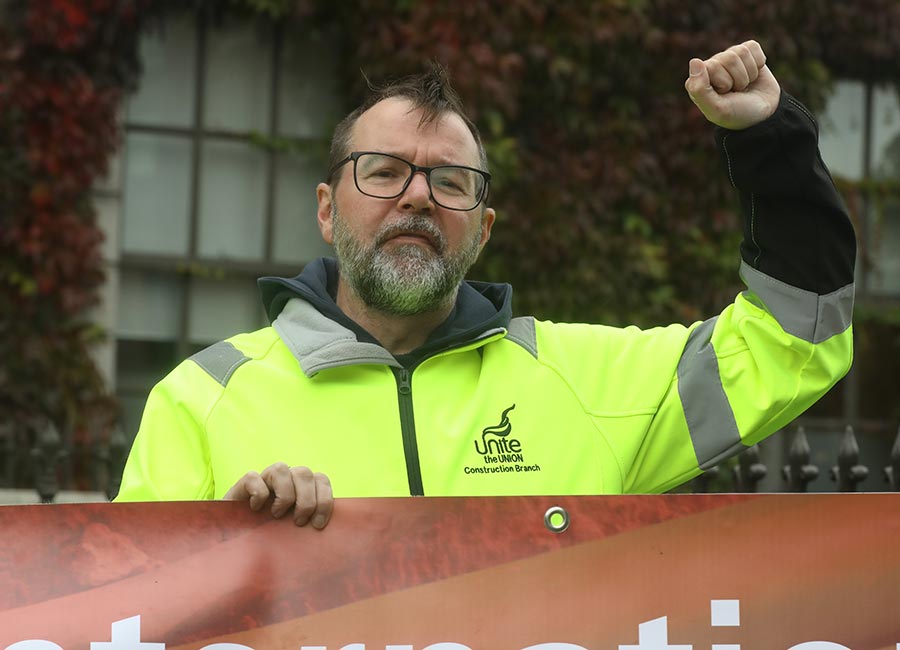Building sites will be hit by a series of one-day strikes by plumbers, fitters and welders in a dispute over a travel allowance.
However, the workers are not downing tools on residential sites because of the housing crisis.
The Unite union, which represents the workers, is looking to reverse pay cuts from the financial crash 14 years ago, which would mean an increase in pay of up to 12.7%.
Its members voted by 90% in favour of the strike action.
Such an increase would add €125 a week to plumbers’ average salary of €51,000 a year.
Unite regional officer James McCabe said that “mechanical employers should be in no doubt regarding our members’ determination to have this cut reversed”.
He added: “Resolution of this dispute is in the employers’ hands: they can either return to the negotiating table with a meaningful offer or prepare for significant disruption.”
The union’s general secretary, Sharon Graham, added: “It is unacceptable that Unite members working for some of the Republic’s most profitable employers are still counting the cost of a cut imposed 14 years ago.
“Our members can count on Unite’s full support through - out this dispute.”
At a meeting of Unite’s disputes committee, it decided on a series of one-day stoppages at large construction sites but has excluded residential sites.
The union has said it wants the restoration of the first hour of travel time, which was cut in 2008 as a supposed temporary measure.
Unite said this was supposed to be reviewed after a year, but it never was.
The Mechanical Engineering and Building Services Contractors’ Association (MEBSCA) said it was “extremely disappointed” that its members were being “targeted” by the union for additional increases in pay.
The association said it had entered into an agreement with the union eight months ago for pay increases of 12.7% for Unite members.
“Unite is now seeking to double this increase despite the fact that this agreement does not expire until May 2026,” the MEBSCA said.
It added that its members provide a travel allowance on top of pay which is included in current pay rates.
It said: “An agreement was entered into with Unite in 2011, which incorporated the first hour of travel into hourly rates.
“This agreement had the effect of increasing the hourly rate, which also resulted in a higher rate being paid for overtime and holidays reverse the agreement that was freely entered into by Unite at that time.”
The association said pay agreements have been negotiated with all unions in the industry, adding: “No other union is seeking additional increases during the term of these agreements.”
It called on Unite to withdraw the threat of industrial action and to use the services of the official industrial relations bodies to assist in resolving the dispute.
Travel time was suspended as a payment during the financial crisis in 2010 as a “temporary measure”.

People Before Profit Solidarity TD Mick Barry said: “Very profitable employers are still benefiting from a pay cut that was made 14 years ago.
“Workers weathering the cost-of-living crisis are still being penalised by a pay cut that was meant to be temporary.
“The 90% vote in favour of industrial action shows the determination of these workers and I think the scene is set for industrial action on a big scale unless the employers see sense and decide to return the payment that was taken when the country was in the grip of a crisis all those years ago.”











